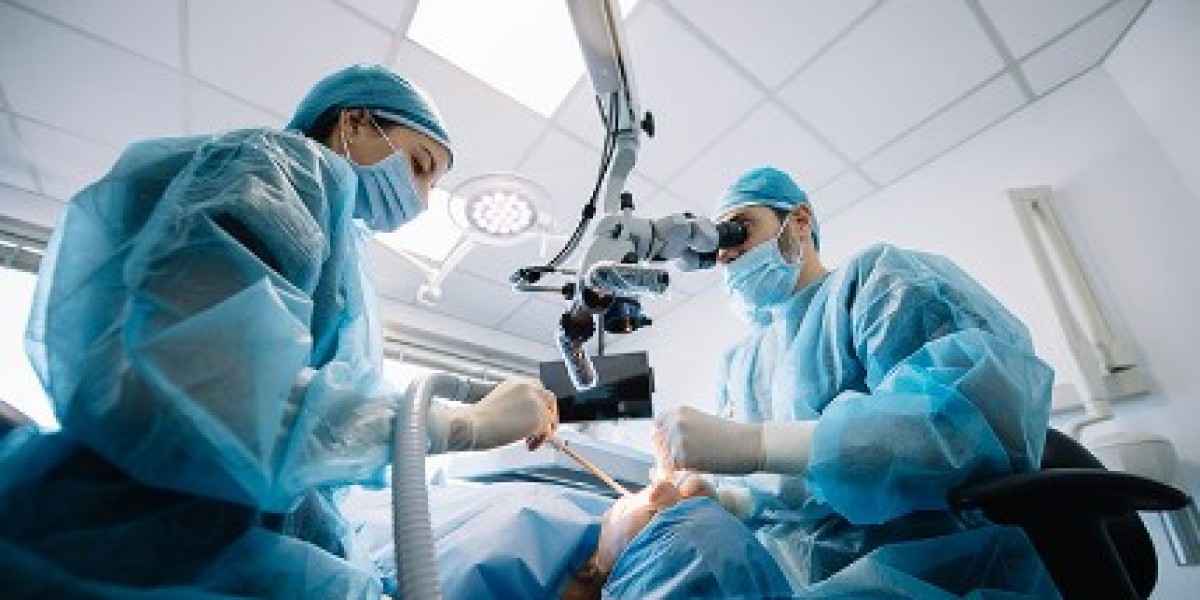When it comes to oral health, choosing the right professional for specialized procedures can be as critical as selecting your primary care dentist. Oral surgeons, also known as maxillofacial surgeons, perform a wide range of procedures from simple tooth extractions to complex reconstructive surgeries. Whether you need wisdom teeth removal, dental implants, or treatment for jaw disorders, finding the right oral surgeon is crucial for your comfort, safety, and overall satisfaction.
In this blog, we will explore the key factors to consider when searching for an oral surgeon near you, including credentials, experience, reviews, technology, and more. By the end, you should feel confident in your ability to select the best oral surgeon to meet your needs.
Understanding the Role of Oral Surgeons
Oral surgeons are dental specialists with extensive training in surgery involving the mouth, jaw, and face. While general dentists can perform minor oral surgeries, oral surgeons handle more complex cases. Their expertise extends to areas like:
- Wisdom Teeth Removal: oral surgeons near me are often called upon to remove impacted wisdom teeth, which can cause pain, infection, and misalignment of other teeth.
- Dental Implants: Oral surgeons place dental implants, which serve as artificial tooth roots for those missing teeth. This procedure requires precision and specialized knowledge to ensure the best outcomes.
- Corrective Jaw Surgery: For those with jaw alignment issues or facial trauma, oral surgeons perform corrective jaw surgery to improve function and aesthetics.
- Facial Trauma Surgery: In cases of accidents or injuries affecting the face, oral surgeons can repair fractures and other damage to the facial structure.
- Pathology: Oral surgeons diagnose and treat diseases of the mouth, including benign and malignant tumors.
Credentials and Qualifications
When searching for an oral surgeon near you, the first factor to consider is their credentials and qualifications. Oral surgeons undergo rigorous training, which typically includes:
- Dental School: Like all dentists, oral surgeons must complete a dental degree, usually taking four years.
- Surgical Residency: After dental school, they must complete a residency program in oral and maxillofacial surgery, which takes an additional four to six years.
- Licensing and Certification: Oral surgeons must be licensed to practice in their state and may also be board-certified, which indicates they have passed rigorous exams and demonstrated a high level of competence in their field.
When evaluating potential oral surgeons, check for these qualifications. You can usually find this information on the surgeon’s website or by contacting their office directly.
Experience Matters
Experience is another critical factor when selecting an oral surgeon. While all oral surgeons have extensive training, those who have been practicing for several years or decades may have additional insights and skills gained from working with a variety of cases. Consider asking potential surgeons about their experience with your specific procedure. For example, if you need dental implants, inquire about how many implant surgeries they have performed and their success rates.
Additionally, some oral surgeons may specialize in certain areas, such as cosmetic facial surgery or reconstructive surgery following trauma. If you have a particularly complex case, finding a surgeon with experience in that specialty can provide added peace of mind.
Reviews and Recommendations
In today’s digital age, online reviews can provide valuable insights into the patient experience at various practices. When searching for an oral surgeon, take the time to read reviews on platforms like Google, Yelp, and Healthgrades. Pay attention to comments about:
- Patient Comfort: How do patients describe their experience during surgery? Were they comfortable and well-informed throughout the process?
- Bedside Manner: Did the surgeon and their staff treat patients with respect and compassion? Were they responsive to concerns?
- Post-Surgical Care: How was the follow-up care? Did the office provide adequate instructions for recovery, and were they available for questions?
In addition to online reviews, personal recommendations from friends, family, or your general dentist can be invaluable. Ask people you trust about their experiences with local oral surgeons.
Technology and Techniques
The field of oral surgery has advanced significantly in recent years, thanks to innovations in technology and techniques. When choosing an oral surgeon, it’s worth considering whether they use the latest tools and methods to ensure the best possible outcomes. Some advancements to look for include:
- 3D Imaging: Advanced imaging technology, like 3D cone-beam computed tomography (CBCT), allows oral surgeons to visualize the anatomy of your mouth and jaw in great detail. This can improve the accuracy of procedures like dental implants.
- Laser Surgery: Some oral surgeons use lasers for soft tissue procedures, which can result in less pain and faster healing times compared to traditional methods.
- Minimally Invasive Techniques: Surgeons who employ minimally invasive techniques may offer reduced recovery times and lower risks of complications.
You can often learn about a surgeon’s use of technology on their website or by asking during a consultation.
Location and Accessibility
Convenience is another important consideration, especially if your treatment requires multiple visits. When searching for an oral surgeon, consider their location relative to your home or work. A surgeon with an office that is easy to reach can make the entire process less stressful.
Additionally, consider the accessibility of the practice. Is there ample parking? Is the office accessible for individuals with disabilities? If you rely on public transportation, check if the office is easily accessible via bus or train.
Insurance and Financing
Oral surgery can be expensive, so it’s important to understand your payment options before committing to a surgeon. Start by checking whether the surgeon accepts your dental insurance. Even if they do, make sure to confirm that your specific procedure is covered under your plan.
If you don’t have insurance, or if your procedure isn’t fully covered, ask about financing options. Many oral surgeons near me offer payment plans or work with third-party financing companies to help make the cost more manageable.
The Consultation Process
Once you’ve narrowed down your list of potential oral surgeons, the next step is to schedule consultations. During a consultation, you’ll have the opportunity to meet the surgeon, discuss your needs, and ask questions. This is also a chance to evaluate the office environment and the staff’s professionalism.
Some questions to consider asking during your consultation include:
- What are the risks associated with my procedure?
- What is the expected recovery time?
- Do you have before-and-after photos of similar cases?
- How do you handle complications if they arise?
Pay attention to how the surgeon answers your questions. Do they take the time to explain things clearly? Do they make you feel comfortable and confident in their abilities?
Making Your Decision
After your consultations, you should have a good sense of which oral surgeon is the best fit for you. Consider all the factors discussed: credentials, experience, reviews, technology, location, and your personal comfort with the surgeon and their staff. Remember, the goal is to find an oral surgeon who not only has the technical expertise but also provides a positive overall experience.
Conclusion
Choosing an oral surgeon is a significant decision that can impact your health and well-being. By carefully evaluating your options and considering the factors outlined in this blog, you can find an oral surgeon near you who meets your needs and provides high-quality care. Whether you’re facing a routine procedure or something more complex, the right oral surgeon can make all the difference in achieving a successful outcome and a smooth recovery.








